Even though severely cut by the censorship boards (and all the original copies being destroyed) “Love Massacre” is still a rather violent film, particularly after a point, but at the same time, quite messy in terms of narrative.
Ivy, a Taiwanese girl studying in California, hangs out most of the time with Louie, an ex-boyfriend and Joy, a girl who exhibits continuous suicidal tendencies, despite the efforts of both the aforementioned. Joy seems to have a thing for Louie, but he has a thing for Ivy, a concept that has made the former girl despising the latter, despite her good will to help her. The “saviors”, after another suicide attempt, decide to call her brother from Hong, Chiu Ching in order to help with her. However, Chiu Ching gets involved romantically with Ivy, antagonizing Louie, complicating things even more, while soon, Ivy finally succeeds in her efforts to kill herself. A bit later, Chiu Ching leaves the US, and while his relationship with Ivy holds on as a long distance one for a bit, eventually she loses interest, and returns to spending time with Louie and the other girls from the dormitory they live. Eventually, Chiu Ching reappears, but the fact that he also has deep psychological issues also comes to the fore, and the story takes an intensely bloody turn.

That Patrick Tam was not sure what he wanted to do with the film becomes obvious from the beginning. A mysterious long short of a woman walking in the desert is followed by an idyllic long shot of a bridge, which is succeeded by Joy trying to cut her wrists, while a bit later, a car-driving sequence accompanied by ominous electronic pop music, very reminiscent of David Lynch's style, makes its appearance. Then the narrative leads to a number of romantic notions, as the first love triangle is shaped, with a psychological twist deriving from Joy's mentality and her repeated suicidal attempt. Another unusual scene is also presented here, with the scene in the museum having a distinct avantgarde approach, essentially highlighting the fact that Tam was experimenting intently here. Chiu Ching's presence intensifies the romantic approach, although that there is something weird about him does become obvious.
After his leaving, however, is where the good part of the film, begins, with the built-up Tam implements being the best part of the narrative. As Chiu Ching's relationship with his wife (played by Deannie Ip) is presented, so does his paranoid mentality, which is gradually revealed until his reappearance in California, where the exploitation elements that were briefly touched before, take completely over the narrative. That the film eventually becomes something similar to grindhouse is equally surprising, well-implemented, and highly entertaining, while the angst that the narrative emits is excellently portrayed by the attitude of Chiu Ching, with Chang Kuo-chu giving an impressive performance in the part.
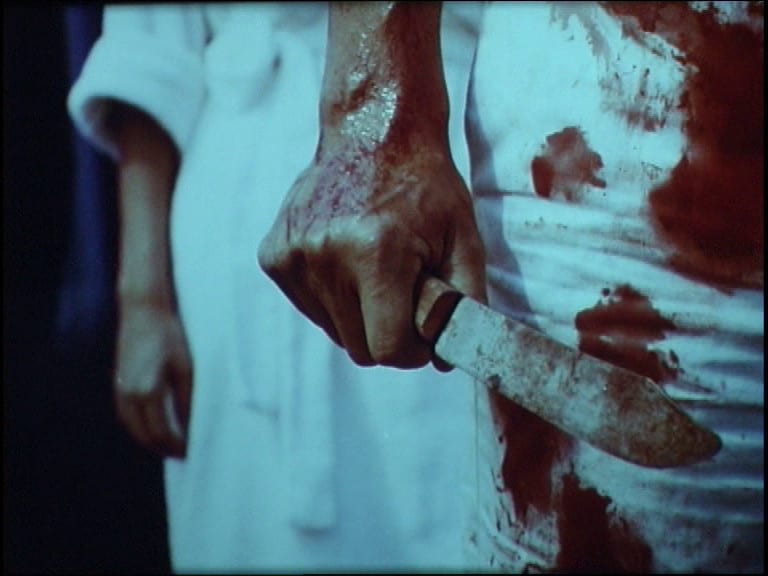
Furthermore, the aesthetics of the movie also find their apogee in the last part, highlighting Tam's eye for composition and his knack for implementing the visual aspect within the narrative. The red hues that occasionally fill the screen when the mad Chiu Ching appears are quite fitting, with the blood that begins to ooze after a fashion, while the contrast with Ivy's frequently white clothes is quite well communicated, as much as her psychological transformation regarding her feelings for Chiu Ching, which was depicted through a red dress before. Brigitte Lin is impressive in the part, with her many changes of mentality being eloquently portrayed. Furthermore, her undeniable beauty becomes a central element of the visual approach, with DP William Chang capturing her beauty and particularly her magnificent face and legs through an approach that is frequently, distinctly voyeuristic.
The setting of the story in California also works quite well, since the aesthetics of the movie are, essentially that of an American b-movie, despite the visual flair mentioned before, and the initial effort at artistry. The editing is also somewhat messy, in a style though, mostly through frequent cuts to completely different settings, that fits the overall narrative nicely.
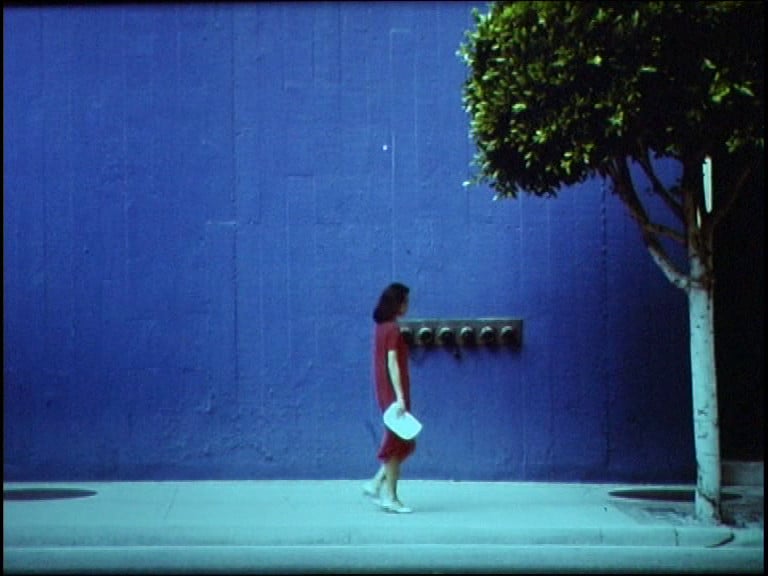
Tina Lay as Joy gives an interesting, if somewhat extreme performance while Charlie Chin has a rather graceless role as Louie, although he makes the most of it, particularly in a number of scenes where he is confronting Chiu Ching, trying to hide his disliking of him but failing. Ann Hui also has a part as Jean, one of the girls in the dormitory occasionally flirting with Louie and having a rather fateful interaction with Chiu Ching.
“Love Massacre” is messy, artful, violent and shows a will to experiment intently, in a style that is essentially the trademark of Hong Kong New Wave.


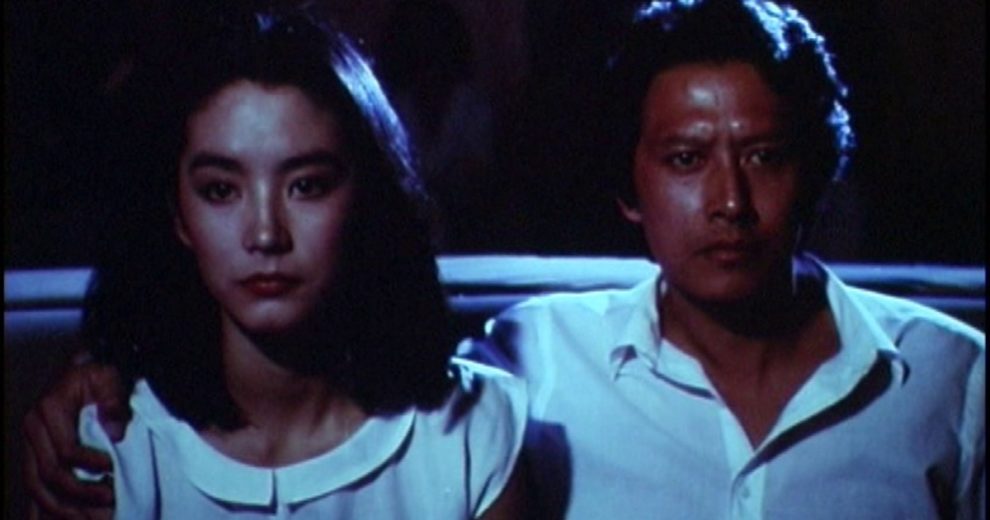
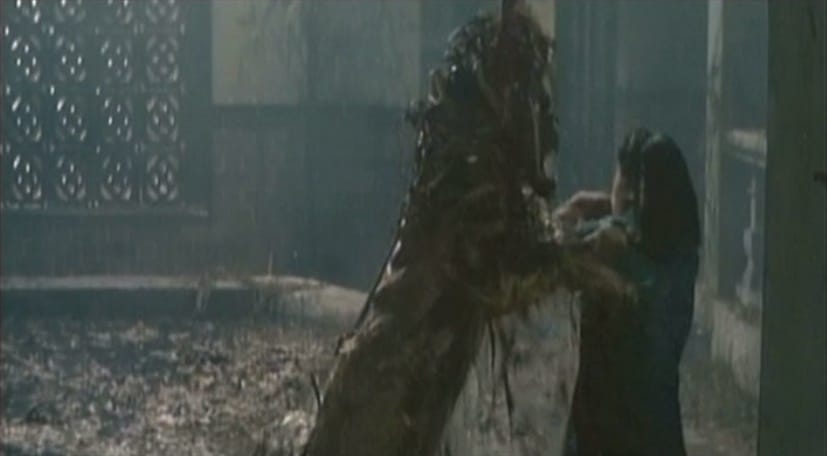
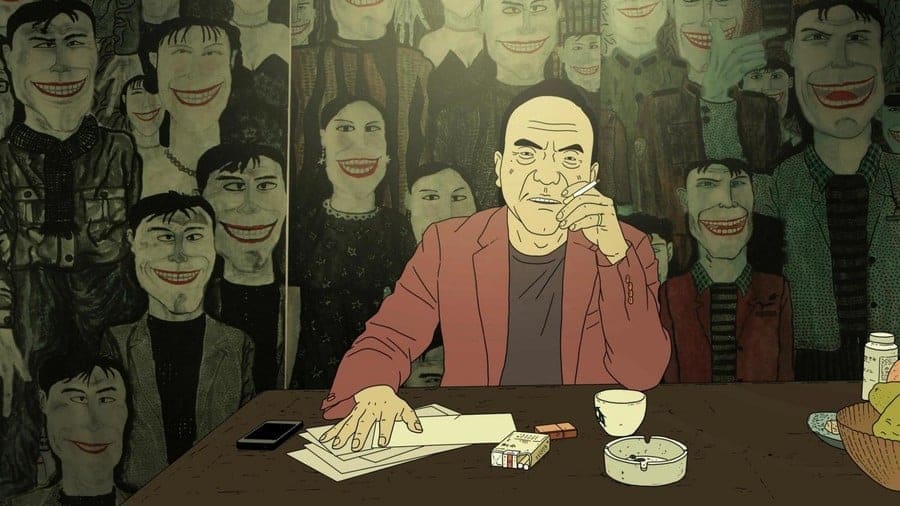
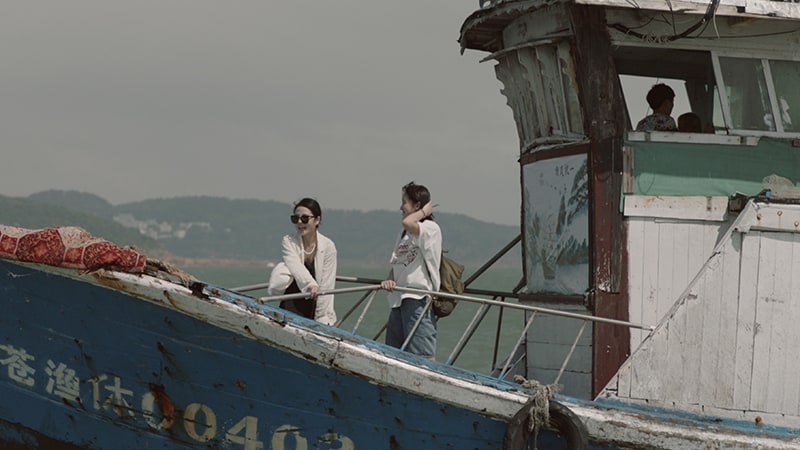

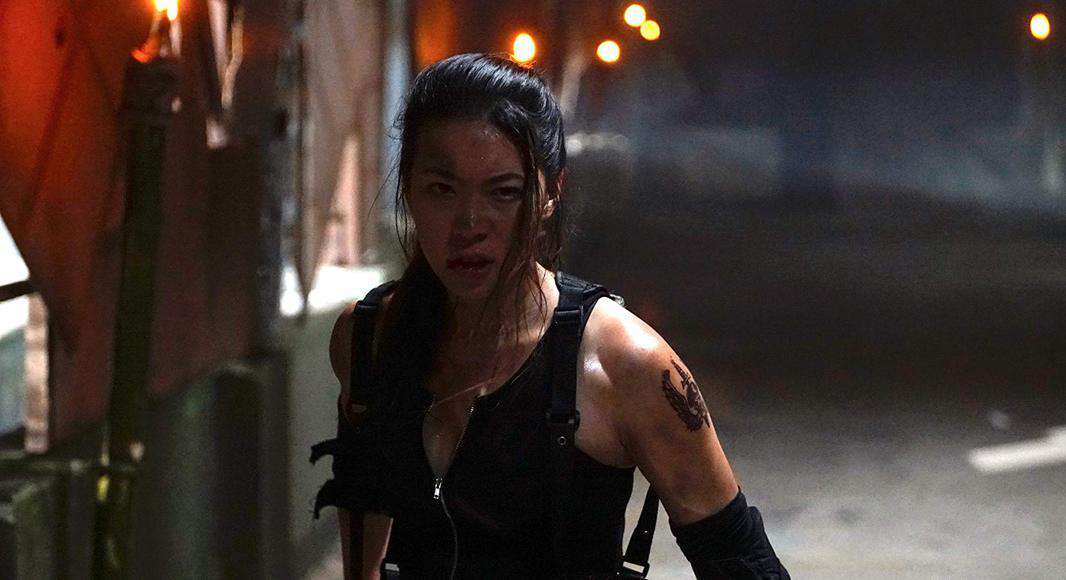








Is there any more information on why the original copies were destroyed? I can’t find a record of it being edited or destroyed anywhere
Truth be told, this was just a note from the person I bought the DVD from, and I have no more info about it, apart from the fact that there are definitely scenes whose transition is rather abrupt